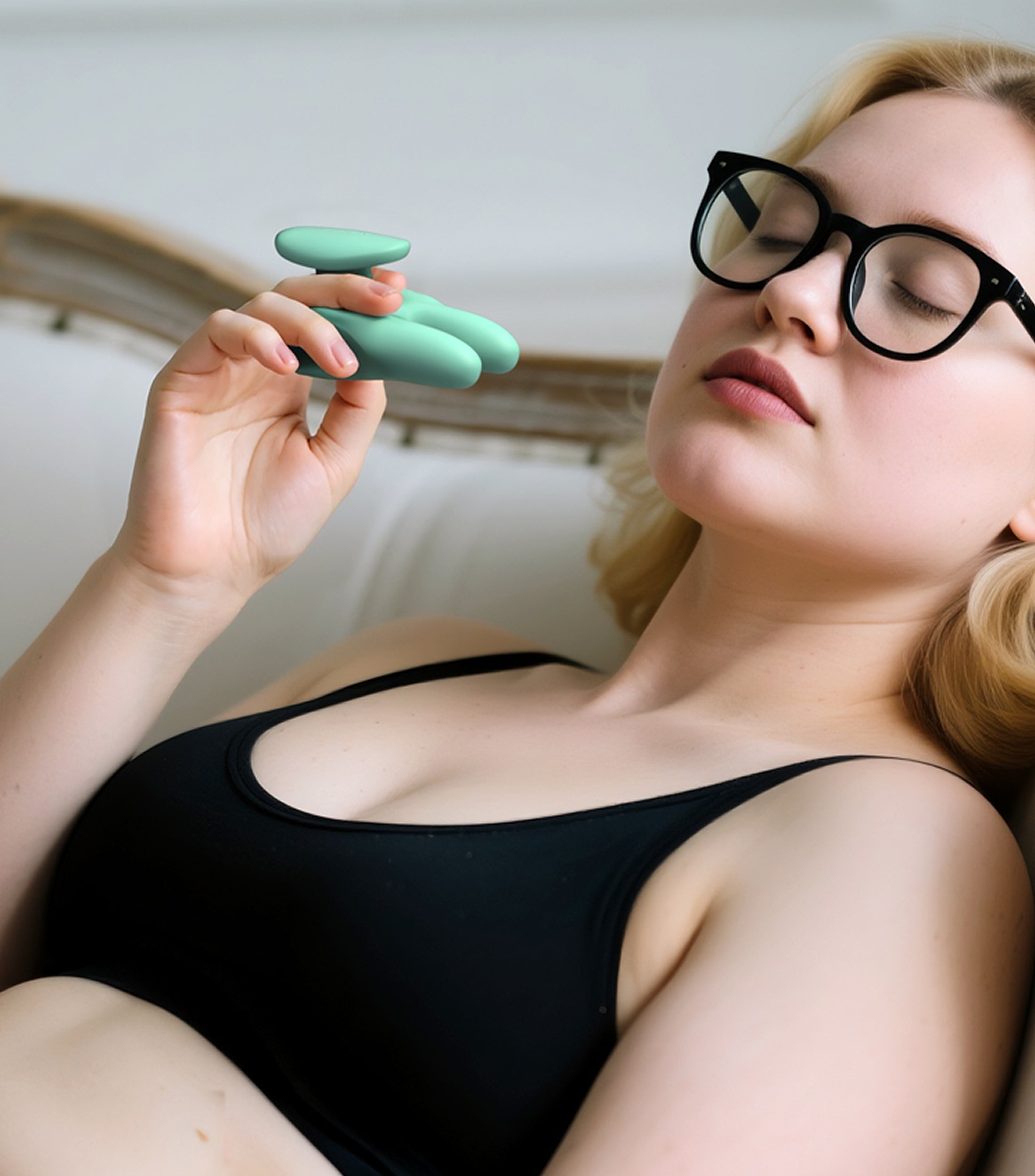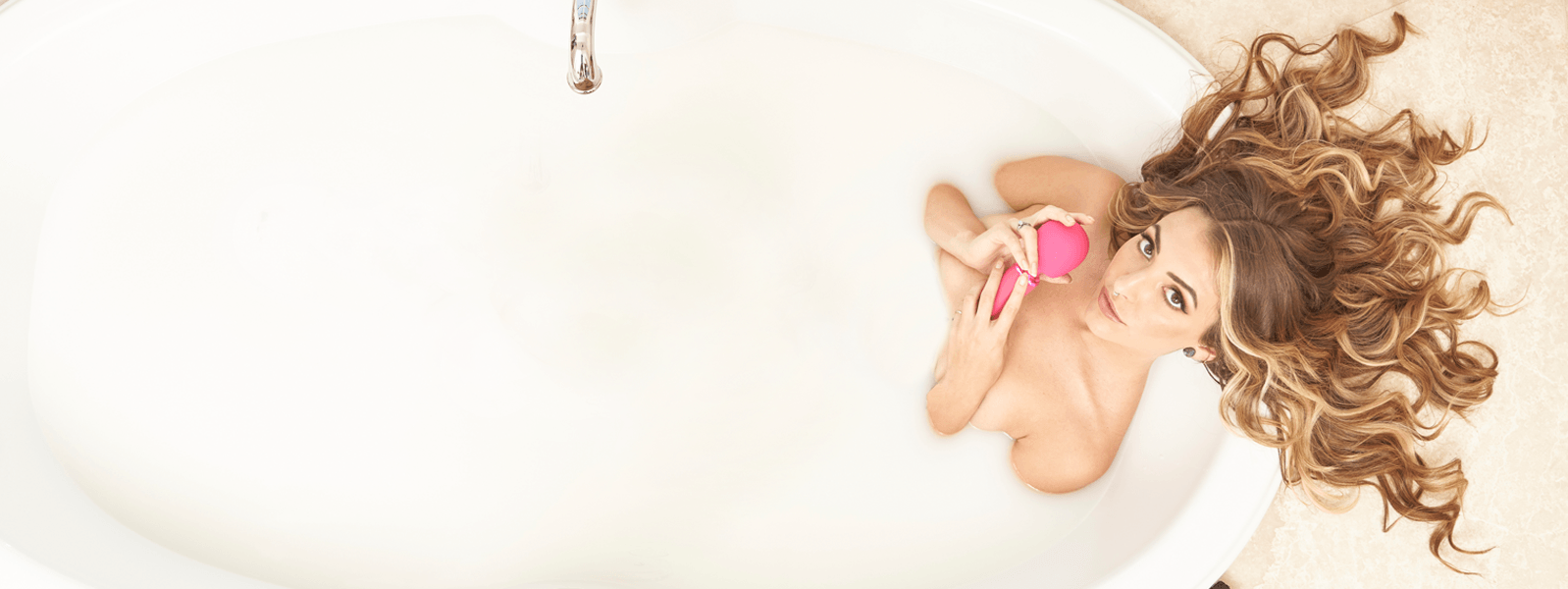How To Keep Your Vagina Healthy?
Vitamins for a Healthy Vagina
How To Maintain a Healthy Vagina?
Take Care of Your Vagina With Vaginal Care Products
There are tons of names for the vagina, but no matter what you prefer to call it, the vagina is an essential part of any woman's body. It requires special care and attention to make sure it stays healthy.
But just what are some indicators of an unhealthy vagina, and what can you do to restore and maintain vaginal health?
Signs of an Unhealthy Vagina

None of us ever want to hear that our vagina may be unhealthy, but it can happen to any woman.
It's important to recognize signs of an unhealthy vagina early so you can take measures to fix it and maintain optimal vaginal health. Some symptoms of an unhealthy vagina include:
- Unusual odor
- Change in color or amount of vaginal discharge
- Vaginal itching or redness
- Bleeding between periods, after menopause, or after sex
- A mass or bulge
- Pain during intercourse
Vaginal dryness — when the tissues in the vagina become thin, dry, or under-moisturized — is another significant indicator of an unhealthy vagina.
The vagina should have a natural discharge to keep it lubricated and elastic all day, especially during sex. But vaginal dryness can cause constant pain while sitting, peeing, exercising, and having sexual intercourse. You may also experience burning, itching, soreness, and infections. You may even (tragically) not want to have sex anymore!
So what can you do to avoid these symptoms and keep your vagina healthy?
How To Keep Your Vagina Healthy?
The vagina is a delicate organ with a specific pH range and complex bacterial microbiome. The vagina generally has a more acidic pH range of 3.8 to 5.0, and many factors can unbalance it.
Thankfully, there are several ways you can keep your vagina healthy and well-balanced.
Take a Holistic Approach to Health

Though you want to take care of your vagina specifically, ensure you take care of your entire body first. Your weight, diet, and level of physical activity all have an impact on your vaginal health.
For example, the foods you eat can affect your pH balance. Certain foods can throw off your pH balance, including:
- High-sugar foods
- Alcohol
- Processed foods
- Hormone-treated meats and dairies
Try to eat these foods sparingly. Instead, you want to regularly consume foods that are good for overall and vaginal health, like:
- Cranberries
- Healthy fats
- Fermented foods
- Prebiotic foods
- Plenty of water
- Foods high in vitamin C
Healthy levels of exercise and a nutritious diet keep your body balanced and fight obesity and other health conditions that can cause unwanted vaginal odors.
Chronic conditions can negatively affect your genital organs. For example, diabetes can increase the probability of contracting urinary tract infections (UTIs) and yeast infections.
Get Screened Regularly
Make sure you see your gynecologist regularly for vaginal care. Stay current with your Pap smear screenings, the frequency of which may change based on your age and results.
You also want to ensure you get your HPV vaccination while young to reduce the risk of cervical cancer.
Don't Mess With the Inside
The vagina cleans itself and has a delicate bacteria and pH balance, so cleaning inside can disturb your pH levels and cause irritation and infection.
So you should never, ever douche. You should also avoid getting substances in between your lips, including body wash, unique vaginal scrubs and cleansers, and more.
Avoid Scented Products
Many products claim to be specially made for the vagina but include fragrances that can also reduce your pH balance.
Don't buy into the myth that the vagina should smell like flowers are nothing at all. The vagina isn't a flower or a spring well.
The vagina is a complex sexual organ with a powerful self-cleaning system and bacterial microbiome. This means a healthy vagina will always have discharge and a natural smell that shouldn't be disturbed with scented vaginal products.
Read: Learn How To Build a Sexual Wellness Routine
Exercise Care During Your Period
Avoid scented liners, tampons, and pads. Make sure you change them four to five times a day and wipe or wash the vulva and vaginal area regularly during your period.
Vitamins for a Healthy Vagina
We all know we can take multivitamins for the body, but there are also products full of vitamins specifically for the vagina. These can come in pill form or oil form.
Vaginal Pills
Vaginal pills are a great way to get vitamins that are specifically good for the vagina.
They hydrate vaginal mucilage tissue and include a host of benefits, such as:
- Boosting and maintaining libido
- Increasing blood flow
- Promoting natural arousal, lubrication, and ability to orgasm
You can directly increase the health of your vagina while also enjoying more pleasure — a definite win-win!
Vaginal Oils
Though you want to keep the vagina dry from moisture caused by water, you still want the skin of your vulva and labia to be moisturized. After all, the vulva has skin, too — some of the most delicate skin on the body.
Vaginal oils are specially made for the vulva and infused with super antioxidants, nutrient-rich extracts, and skin-loving oils to revitalize and reinvigorate the vulva. They can help:
- Soothe, smooth, and soften dry or thinning skin
- Relieve vaginal dryness
- Maintain the vagina's microbiome
- Reduce razor bumps, ingrown hairs, and genital acne
- Hydrate skin, retain moisture, and improve elasticity
How To Maintain a Healthy Vagina?
If your vagina has been restored to optimal health or has always been healthy, you want to do all you can to keep it that way. There are several ways you can maintain a healthy vagina.
Keep the Surrounding Areas Clean
Make sure you wash your vulva — the exterior portion — with warm water daily.
You don't necessarily have to use soap. But if you do, make sure it is gentle and hypoallergenic. It's even better to use a pH-balanced vaginal cleanser. And remember — never use it in the vagina, only on the vulva.
You should also keep the anus clean to prevent anal bacteria from traveling to the urethra and causing irritation and infections.
Only Use Vagina-Safe Products
Always check the ingredients of any products you use for the vagina, such as lubricants and condoms. You want to make sure they don't have any elements that can throw off your pH balance, such as:
- Petroleum
- Glycerin
- Scents
- Parabens
- Non Natural oils
- Flavors
- Dyes
- Spermicides
Consider using natural lubricants and vaginal moisturizers like olive oil or coconut oil. You can also use water or silicone-based lubricants as alternatives.
If you use latex condoms, opt for ones with water-based or silicone lubricants and no spermicides.
Practice Safe, Clean Sex

We — and our vaginas — love a good romp in the sheets. But if you don't take some extra precautions, you could mess up your vagina's pH balance.
Make sure you use a condom unless you're trying to get pregnant. Sexual fluids like precum and sperm can bring foreign bacteria to your vagina, throwing off the pH balance.
If you prefer the ladies, take precautions with arousal fluid, especially when tribbing for more extended periods. It can also contain bacteria that affect your pH balance.
If you switch between anal and vaginal sex, always use a new condom before each switch. Your vagina can carry bacterial strains that irritate or infect your anus and vice versa.
Once all the fun is over, ensure you urinate after each sex session. Bacteria can travel to the urethra during sex and possibly cause a urinary tract infection. It would be best if you also showered or cleaned your vulva with warm water, then dried the area thoroughly.
Keep Her Dry
Bacteria grows quickly in moist environments, which can lead to a yeast infection. You want to choose clothing that will let the vulvovaginal area breathe easily and stay dry.
Instead of wearing polyester or silk underwear, wear cotton. It is less likely to hold moisture. You can also choose boyshorts for a more loose fit around the legs.
Try to wear underwear that isn't too tight. This includes thongs. They can collect fecal matter from the anus and move it to the vagina, causing odors and even infections.
If you work out or get your clothes wet, change your clothes as soon as possible. And if you have heavy vaginal discharge, make sure you change your underwear at least twice a day.
Finally, let your vagina breathe overnight. It's best not to wear any underwear to keep sweat from being trapped around the vulva. But if you must wear clothing, try to wear something loose so your vaginal area can breathe.
Take Care of Your Vagina With Vaginal Care Products
While it should never smell like one, the vagina can be as delicate as a flower. It requires conscious decisions to keep it healthy, such as getting regular screenings, building good habits during your period, and avoiding foods and scented products that upset your pH balance. You can maintain vaginal health by cleaning the surrounding areas, using vagina-friendly products, practicing safe sex, and keeping the vagina dry.
Read: How to have Safe Sex?
Here at JIMMYJANE, we firmly believe that the sexual health of women and everyone is vitally important. We provide high-quality sexual products to improve intimacy and enhance sexual wellness. Feel free to take a look at our collection. There's something for every woman.
SOURCES:
Vagina: What's typical, what's not? (February 2022). Mayo Clinic.
Experiencing Vaginal Dryness? Here's What You Need to Know. (October 2020). The American College of Obstetricians and Gynecologists.
Vaginal pH Value for Clinical Diagnosis and Treatment of Common Vaginitis. (October 2021). National Library of Medicine.
8 Bits for Your Bits: Your Vagina's Favorite Foods. (August 2022). Healthline.
Diabetes and Its Impact on Your Urinary and Sexual Health. (2017). UrologyHealth extra.
What to know about peeing after sex. (December 2019). Medical News Today.
 Vibrators
Vibrators Toys for Women
Toys for Women Toys for Men
Toys for Men Couples & Partners
Couples & Partners



Share
Don't Rub the Wrong Way — The Link Between Vibrators and Ovarian Cancer
How To Have Multiple Orgasms With Your Sex Toys?